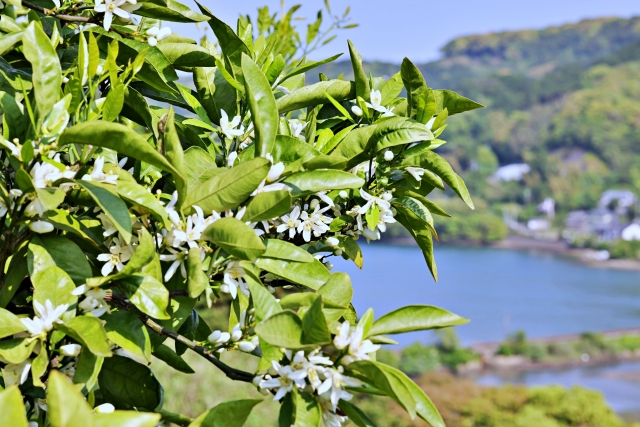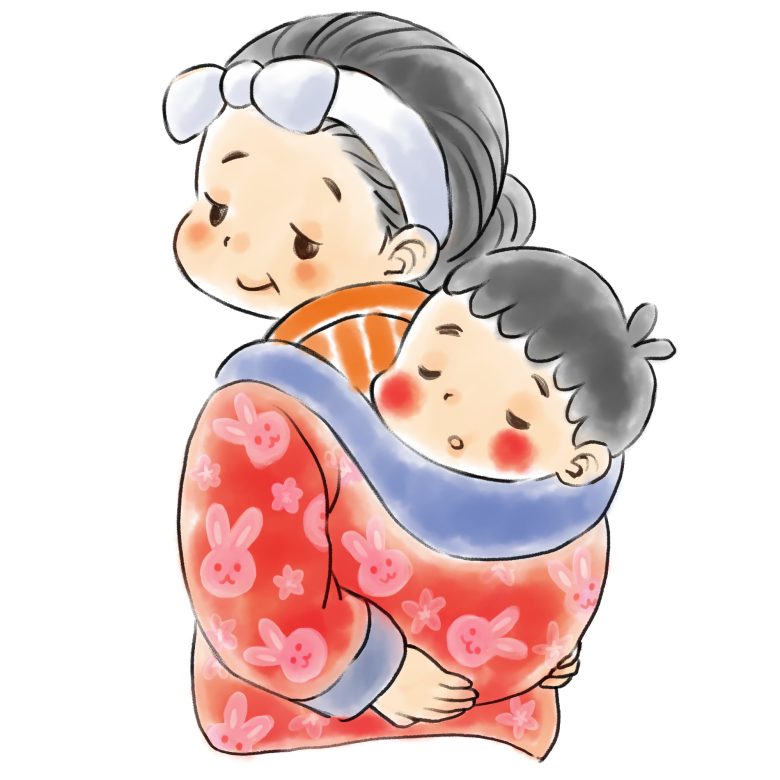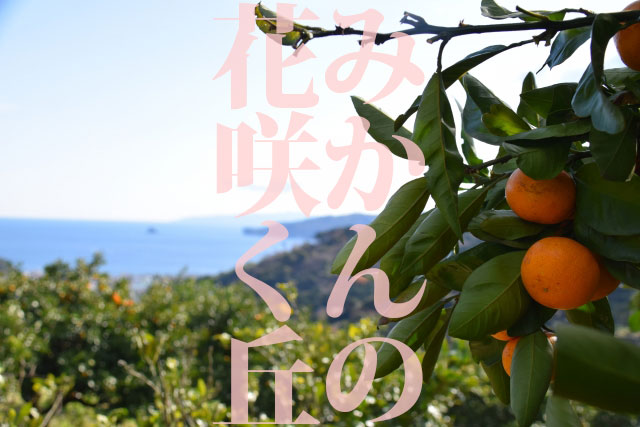Mikan no hana saku oka
Mikan no hana ga saite iru
Omoide no michi oka no michi
Haruka ni mieru aoi umi
Ofune ga tooku kasunderuKuroi kemuri wo hakinagara
Ofune wa doko e yuku no deshou
Nami ni yurare te shima no kage
Kiteki ga bou to narimashitaItsuka kita oka kaasan to
Issyo ni nagameta ano shima yo
Kyou mo hitori de mite iru to
Yasashii kaasan omowareruLyricist:KATOU Shougo
Composer:KAINUMA Minoru
in1946
Orange blooming hill
Orange flowers are in bloom.
Memories road, hill road.
The blue sea that can be seen far away.
A foreign ship looks faint in the distance.
Where does the foreign ship go,
spitting black smoke?
When the waves sway and you can’t see the shadow of the island,
The whistle sounded “bow”.
A long time ago, I was a mother on this hill.
I looked at that island together.
When I watch it alone today,
I remember a gentle mother.

Why Does This Song Warm Our Hearts So Gently?
There’s something almost magical about “Mikan no Hana Saku Oka” (The Hill Where Orange Blossoms Bloom). The song is woven with a nostalgic melody and lyrics that trace memories of childhood days, but it’s not melancholic at all. Rather, it’s a melody that gently embraces the heart, offering warm comfort to all who listen.
Even if you’ve never witnessed such a scene, the image of fragrant orange blossoms blooming on hillsides comes alive in your heart. This goes beyond mere description of nature—it awakens feelings for the “homeland” that everyone carries deep within their soul. The true charm of this song lies in how it evokes nostalgia while gently encouraging and comforting its listeners.

Mikan no hana (Orange flower)
What Is the “Mother’s Love” Hidden in This Song?
The greatest theme of this song is undoubtedly the loving “mother’s presence” from childhood days. What’s embedded in the lyrics is a deep longing for the beautiful scenery once viewed together with mother. Orange blossoms gazed upon while holding mother’s hand as a child, hill paths walked together, peaceful afternoon moments shared—such loving memories breathe within this song.
The reality of “now viewing alone” means more than just the passage of time. It tells a story of growth and separation, representing life’s journey while carrying precious memories of a beloved mother in one’s heart. Looking back at the scenery from memories with mother, now as an adult viewing it alone—this sentiment is precisely why this song resonates so deeply in many people’s hearts.

A Miracle Born in Just 30 Minutes
This heartwarming masterpiece was born in 1946, just one year after the war’s end. During an era when Japan was seeking new hope, this song was created alongside innovative technology—for a groundbreaking live radio broadcast connecting Tokyo and Ito City in Shizuoka Prefecture.
What’s remarkable is that this eternal masterpiece was completed in an unbelievably short time. Lyricist KATO Shogo, born in a fishing port town in Shizuoka Prefecture, deeply understood coastal landscapes and maternal love. Within just 30 minutes on the day before the broadcast, he completed lyrics filled with gratitude to mothers and love for hometown. Each carefully chosen word, despite being written so quickly, possessed the power to touch listeners’ heartstrings.

Why It’s Still Loved After 80 Years
Composer KAINUMA Minoru was moved by KATO’s lyrics while traveling to Ito by train, inspired by the actual orange groves visible from his window to complete the melody. The lyrics singing of memories with mother harmonized beautifully with the gentle melody that embraces the heart, creating a masterpiece that continues to be loved by many people nearly 80 years later.
The reason this song is loved across generations is because it awakens the gratitude everyone holds for their mother and the longing for pure childhood love. In today’s busy life, when people hear this song, they remember their own memories with mother and the preciousness of ordinary days spent together. This isn’t sadness, but warm gratitude for loving memories.

Sunrise from Ito, Shizuoka Prefecture By Shift, CC BY-SA 3.0, Link
Maternal Love That Will Be Sung Forever
“Mikan no Hana Saku Oka” received the honor of being selected as one of Japan’s “100 Best Japanese Songs,” but its true value doesn’t lie in awards. The real meaning of this song is that it continues to sing about how maternal love supports the human heart and enriches life.
Even as times change and lifestyles evolve, maternal love and the pure heart of childhood remain unchanged. This song has been carefully passed down to this day, entrusting such universal forms of love to its beautiful melody. The hill where orange blossoms bloom will continue to gently illuminate many people’s hearts as a spiritual hometown where memories with mother bloom eternally.




コメント